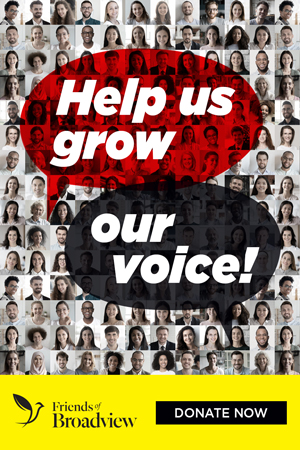In the mid-1990s at the age of four, I was diagnosed with dyspraxia, a co-ordination disorder that delays the processing and planning of my movements and my perception of space and time. Because the average Canadian’s understanding of neurodiversity is rather limited, I have spent most of my life feeling misunderstood and undersupported; by adulthood, I turned to self-employment and remote jobs to escape the work cultures in which I often struggled to belong.
Australian sociologist Judy Singer coined the term “neurodiversity” in 1998. It includes neurological conditions like autism, dyslexia, attention deficit hyperactivity disorder and dyspraxia. Because neurodivergence affects how you think, experience and interact with the world, daily life can be uniquely frustrating. Of the 600,000 neurodivergent adults in Canada, only a third of autistic adults in Canada are employed, for example — and those who do work are poorly supported.
A 2022 study conducted by Deloitte Canada found that autistic employees considered the lack of structural support systems to be a significant barrier to success. Almost half of autistic employees also reported discomfort at disclosing their neurodiversity. As a neurodivergent person, you never know how safe you are from discrimination in the workplace. Many of us thus work without sharing our support needs, and we internalize a position of fear about our diagnoses because of negative stereotypes. We’re also frequently shamed by authority figures for how we cope with our symptoms and our surroundings.
More on Broadview:
- Why Canada’s new disability benefit will not be enough
- How long COVID is shining a new light on chronic fatigue syndrome
- ‘I’ve always believed that disability is part of God’s good design’
To blend in with our environments, we exhibit a survival-based behaviour called “masking.” When neurodivergent people mask, conversations are carefully rehearsed, and our behaviour directly mirrors our neurotypical peers. If neurodivergent people feel too unsupported by their peers to unmask, long-term consequences often include suicidal ideation, addiction issues, burnout and depression.
There is hope, however. A growing number of STEM companies are providing neurodiversity resources and encouraging staff to attend neurodiversity-focused events. While most businesses in Canada don’t have budgets on par with the likes of IBM, Google or Microsoft, standard accommodations for neurodivergent people like access to a quiet area, limitations on the number of daily meetings or extra breaks are significant steps.
Want to read more from Broadview? Consider subscribing to one of our newsletters.
Not long ago, no one with a corporate mindset wanted to hear from, hire or work with someone like me. Now, I am occasionally asked to be a guest speaker at neurodiversity events or assigned writing jobs on the subject.
In 2020, almost 50 percent of Canadian companies reported workplace shortages. Would the shortage be as severe if more neurodivergent people were able to stay at the same job?
***
Rosemary Richings is a writer, editor and public speaker. Originally from Toronto, she now lives in Morocco.
This story first appeared in Broadview’s January/February 2024 issue with the title “Fixing the Workplace.”
Thanks for reading!
Did you know Broadview is the only media organization in Canada dedicated to covering progressive Christian news and views?
We are also a registered charity and rely on subscriptions and tax-deductible donations to keep our trustworthy, independent and award-winning journalism alive.
Please help us continue to share stories that open minds, inspire meaningful action and foster a world of compassion. Don’t wait. We can’t do it without you.
Here are some ways you can support us:
Thank you so very much for your generous support! Together, we can make a difference.
Jocelyn Bell, Editor/Publisher, CEO and Trisha Elliott, Executive Director


Comments